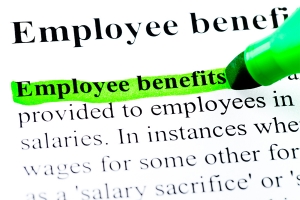JW Recruitment
The Benefits of Recruiting Locally in the Restaurant Industry
The UK restaurant industry is a major employer, providing jobs for millions of people across the country. In recent years, there has been a growing trend towards more diverse and wide reaching recruitment strategies, and part of that is utilising a local community in its drive to recruit new employees. In this article, we will explore the benefits to the UK restaurant industry, including how local recruitment, recruitment fairs, and other options could help businesses to recruit locally.
When Does Local Recruitment Work?
Local recruitment is a good option for restaurants looking to expand into a new area or startups looking to find additional staff. Regardless of whether the role is managerial or a culinary, those who already know the area well bring a wealth of insight into factors that can affect custom, and can engage more authentically with clientele. It helps to build a sense of loyalty in staff which can improve retention rates and reduce turnover, but it also serves to build stronger relationships between the restaurant and the local community.
How to Hire Locally
Just some steps you could take to hire locally could include:
1. Targeted Ads
Using targeted ads on websites and social media platforms helps restaurant businesses attract a specific pool of candidates within a particular geographic area. With the ability to narrow down audience demographics based on factors such as location, age, interests, and job experience, targeted ads can find qualified candidates who are more likely to be interested in and qualified for the job. Additionally, restaurants can tailor the messaging and visuals of the ad to resonate with the target audience. However, businesses might also consider advertising in local press such as newspapers and on radio to reach those older or offline audiences.
2. Recruitment Fairs
Recruitment fairs are another great way to recruit staff locally in the UK restaurant industry. These fairs provide a platform for restaurants and their managerial team to showcase their business and attract potential employees. They also provide an opportunity for job seekers to speak to existing staff and learn more about the industry and the types of jobs that are available. Recruitment fairs can be particularly effective for restaurants that are looking to recruit staff for entry-level positions, such as waiters and kitchen assistants.
3. Use Job Boards
Using job boards for recruiting locally is a popular and effective method for businesses seeking to reach a broad audience of job seekers within a particular geographic area. Many job boards offer the ability to filter their positions to a specific region, town or geographic radius. It’s then easy to sort through applications to identify candidates that meet the person spec. Job boards allow businesses to post job openings and receive applications from a diverse pool of candidates, including those who may not have heard of the company before or if planning to advertise for a role before a restaurant is open.
Takeaway
By tapping into the local talent pool, restaurants can enjoy a more engaged workforce with ties to their surrounding communities. This provides a number of benefits to employers as staff will live nearby, reducing complications of getting to work, but also meaning they bring knowledge of the local community to their role. This can really make a positive impact on the overall reputation of a restaurant in the local area, which is great for business. What’s more, there are plenty of opportunities to recruit locally, whether restaurants decide to advertise locally or find talent at recruitment fairs.
When all else has been tried and you are still in need of the right members for your team, then we may be able to help. Feel free to get in touch or register your vacancy here.
How Technology is Transforming UK Hospitality Recruitment
Technology has been rapidly transforming how industries operate, helping businesses move into the digital age for greater efficiency. The hospitality industry is one such industry that’s feeling the benefit of new technology, especially when it comes to recruitment. The advent of technological solutions such as online jobs portals, social media and AI have helped to streamline recruitment processes. In this article, we explore the ways in which technology is transforming UK hospitality recruitment.
Online Job Portals
Gone are the days when job seekers had to physically visit a job centre or workplace to enquire about vacancies. Today, job seekers can access online job portals, where they can browse through various hospitality jobs in the UK. Job seekers can now apply for hospitality roles such as restaurant manager or Head Chef from the comfort of their homes and on their own schedules. Online job portals have not only opened up more opportunities to job seekers but have also simplified the process for employers, allowing businesses to manage job adverts and applications easily from just a few accounts.
Social Media Recruitment
Social media platforms such as LinkedIn, Twitter, and Facebook have become essential tools for recruiters. Businesses can now reach out to potential candidates and advertise job openings on these platforms to grow their available talent pool. Social media recruitment has proven to be cost-effective with the ability to run targeted ads and campaigns to drive interest too. An additional benefit is that it allows recruiters to quickly and easily screen potential candidates by reviewing their online profiles to verify their claims and see if they’ll be a good match.
Video Interviews
Traditionally, recruiters would invite candidates for in-person interviews, which can be time-consuming and expensive. With the help of technology, recruiters can now conduct video interviews, which saves time and money overall and removes barriers to access, particularly for those with disabilities or care responsibilities. Video interviews and collaborative technology enable recruiters to reach out to candidates from all over the world to get access to the best candidates regardless of their location or circumstances.
Artificial Intelligence (AI) and Machine Learning
AI and machine learning are now being used in the hospitality recruitment process to screen CVs and identify potential candidates that match the requirements of a job. AI can also be used to automate various recruitment processes, such as scheduling interviews and sending out emails to candidates. Machine learning can also help recruiters identify patterns in candidate behaviour, which can help hospitality businesses make better recruitment decisions.
Takeaway
From artificial intelligence to new online platforms for recruitment, technology is helping to reshape how the hospitality industry sources talent from Executives to front line members of the team . These new tools make it easier, faster and cheaper to find the right candidates for various hospitality jobs. What’s more, they are constantly evolving and improving, which means that the hospitality industry as a whole will enjoy even more efficiencies in future.
For support finding the best members for your team visit our website.
How Technology is Transforming UK Hospitality Recruitment
Technology has been rapidly transforming how industries operate, helping businesses move into the digital age for greater efficiency. The hospitality industry is one such industry that’s feeling the benefit of new technology, especially when it comes to recruitment. The advent of technological solutions such as online jobs portals, social media and AI have helped to streamline recruitment processes. In this article, we explore the ways in which technology is transforming UK hospitality recruitment.
Online Job Portals
Gone are the days when job seekers had to physically visit a job centre or workplace to enquire about vacancies. Today, job seekers can access online job portals, where they can browse through various hospitality jobs in the UK. Job seekers can now apply for hospitality roles such as restaurant manager or Head Chef from the comfort of their homes and on their own schedules. Online job portals have not only opened up more opportunities to job seekers but have also simplified the process for employers, allowing businesses to manage job adverts and applications easily from just a few accounts.
Social Media Recruitment
Social media platforms such as LinkedIn, Twitter, and Facebook have become essential tools for recruiters. Businesses can now reach out to potential candidates and advertise job openings on these platforms to grow their available talent pool. Social media recruitment has proven to be cost-effective with the ability to run targeted ads and campaigns to drive interest too. An additional benefit is that it allows recruiters to quickly and easily screen potential candidates by reviewing their online profiles to verify their claims and see if they’ll be a good match.
Video Interviews
Traditionally, recruiters would invite candidates for in-person interviews, which can be time-consuming and expensive. With the help of technology, recruiters can now conduct video interviews, which saves time and money overall and removes barriers to access, particularly for those with disabilities or care responsibilities. Video interviews and collaborative technology enable recruiters to reach out to candidates from all over the world to get access to the best candidates regardless of their location or circumstances.
Artificial Intelligence (AI) and Machine Learning
AI and machine learning are now being used in the hospitality recruitment process to screen CVs and identify potential candidates that match the requirements of a job. AI can also be used to automate various recruitment processes, such as scheduling interviews and sending out emails to candidates. Machine learning can also help recruiters identify patterns in candidate behaviour, which can help hospitality businesses make better recruitment decisions.
Takeaway
From artificial intelligence to new online platforms for recruitment, technology is helping to reshape how the hospitality industry sources talent from Executives to front line members of the team . These new tools make it easier, faster and cheaper to find the right candidates for various hospitality jobs. What’s more, they are constantly evolving and improving, which means that the hospitality industry as a whole will enjoy even more efficiencies in future.
For support finding the best members for your team visit our website.
Softer approach to visa sponsorship could help hospitality industry
Introduction
The UK Government has announced a number of changes and updates to help the economy and keep businesses active. For the hospitality industry, the most important of these changes comes from an update to the points-based immigration system that the UK currently uses. Whether these changes will help hospitality remains to be seen, but it all sounds promising.
Changes to points-based immigration for hospitality
The UK Government’s planned changes to the points-based immigration system aim to help the hospitality, construction and retail industries by making it easier to recruit foreign workers for certain roles. The plans are being considered by the Migration Advisory Committee (MAC) to determine whether or not industries like hospitality could take advantage of an updated shortage occupation list.
Making the Shortage Occupation List more useful
The big change brought forth by the Government would see the Shortage Occupation List updated to accommodate industries that need help with filling key roles. This list has been in need of an update for a while, as it was last looked at back in 2020. A lot has happened since then, so the skilled jobs that certain industries are desperately looking to fill might not be on the 2020 list.
At its core, the Shortage Occupation List is designed to make it easier to bring in candidates from foreign countries to bridge the gap for roles that are hard to fill using domestic workers. It works by lowering the requirements around salary thresholds for foreign workers if they qualify for skilled worker visas to enter the UK. At the moment, the threshold is £25,600 - but jobs on the list can lower this to £20,480 or a 20 % discount - whichever is higher. Moreover, it can also lower the costs associated with sponsoring foreign workers for visas.
When will the changes be announced?
It’s unknown at this time exactly when we’ll hear more about these updates, but the hopes are that the review will wrap up over the next few weeks. It seems quite unlikely that we’ll hear much about this until after the budget due to the heightened tensions around migration at the moment. Insider sources claim that the role of chef and hotel manager were both in consideration to be added to the list.
Conclusion
So, with the UK Government making some plans to update legislation so that it will be easier for the hospitality industry to bring in foreign workers, things might get quite interesting over the next few months. Making it easier to bring in talent from abroad for key roles like chefs and hotel managers could really help the industry as a whole, but what remains to be seen is whether or not the UK Government can pull this off without causing controversy.
Should you require support with hospitality recruitment please contact us via www.jwrecruitment.co.uk.
Softer approach to visa sponsorship could help hospitality industry
Introduction
The UK Government has announced a number of changes and updates to help the economy and keep businesses active. For the hospitality industry, the most important of these changes comes from an update to the points-based immigration system that the UK currently uses. Whether these changes will help hospitality remains to be seen, but it all sounds promising.
Changes to points-based immigration for hospitality
The UK Government’s planned changes to the points-based immigration system aim to help the hospitality, construction and retail industries by making it easier to recruit foreign workers for certain roles. The plans are being considered by the Migration Advisory Committee (MAC) to determine whether or not industries like hospitality could take advantage of an updated shortage occupation list.
Making the Shortage Occupation List more useful
The big change brought forth by the Government would see the Shortage Occupation List updated to accommodate industries that need help with filling key roles. This list has been in need of an update for a while, as it was last looked at back in 2020. A lot has happened since then, so the skilled jobs that certain industries are desperately looking to fill might not be on the 2020 list.
At its core, the Shortage Occupation List is designed to make it easier to bring in candidates from foreign countries to bridge the gap for roles that are hard to fill using domestic workers. It works by lowering the requirements around salary thresholds for foreign workers if they qualify for skilled worker visas to enter the UK. At the moment, the threshold is £25,600 - but jobs on the list can lower this to £20,480 or a 20 % discount - whichever is higher. Moreover, it can also lower the costs associated with sponsoring foreign workers for visas.
When will the changes be announced?
It’s unknown at this time exactly when we’ll hear more about these updates, but the hopes are that the review will wrap up over the next few weeks. It seems quite unlikely that we’ll hear much about this until after the budget due to the heightened tensions around migration at the moment. Insider sources claim that the role of chef and hotel manager were both in consideration to be added to the list.
Conclusion
So, with the UK Government making some plans to update legislation so that it will be easier for the hospitality industry to bring in foreign workers, things might get quite interesting over the next few months. Making it easier to bring in talent from abroad for key roles like chefs and hotel managers could really help the industry as a whole, but what remains to be seen is whether or not the UK Government can pull this off without causing controversy.
Should you require support with hospitality recruitment please contact us via www.jwrecruitment.co.uk.
Great British Menu’s Charlotte Vincent Appointed at Hotel Indigo Exeter – JW Recruitment
JWR place GBM’s Charlotte Vincent at the New Opening Hotel Indigo in Exeter.
Hospitality specialists, JWR answered the call of Castlebridge Hospitality when searching for a top Head Chef to put their new opening restaurant on the map!
Working in partnership with the senior team at Castlebridge Hospitality, the team at JWR got hard to work based on the brief provided to find an exceptional Head Chef that will showcase the best produce the South West has to offer within their brand new restaurant.
Charlotte, who is currently on BBC 2 ‘Great British Menu’, was raised in Exeter and began her career in the Royal Logistics Corp of the British Army. She later joined Michael Caines at Gidleigh Park, where she worked as a pastry chef, before moving to The Royal Clarence Hotel in the same capacity.
Charlotte took over at The Five Bells in Devon three years ago, earning the pub a place in the UK’s Top 50 Gastropubs shortly afterwards, as well as cooking for the likes of Paul Ainsworth and Boris Johnson when he was PM.
Charlotte’s cooking style is taking nature in its raw form and bringing it to the plate while doing justice to the ingredients. She likes to draw on Nordic influences and techniques and loves a plate to be a taste and smell of our beautiful Devon countryside.
MD, James Webber said; “We are thrilled to see the impact Charlotte is having at Indigo since placing her in the business. Adding her to the already impressive Senior Operations Team, alongside the General Manager and Sales Manager, also placed by ourselves, helps support Castlebridge in launching the hotel with a bang!”
James Webber Recruitment have been supporting the hospitality and leisure industry since 1999, matching the best quality candidates to our clients highest expectations in order to add significant value and impact within their business, whilst also enhancing and developing our candidates careers and professional development.
If we can be of any support to your business – get in touch now.
July 19th 2021 – a day known to many as Freedom Day - marked a complete lifting of Coronavirus restrictions that have hindered the hospitality sector for many months. For businesses and individuals working in hospitality, there is one question left to ask. Has Freedom Day truly saved the hospitality sector? At JW Recruitment, we have compiled this blog post looking into the effects that Freedom Day has had on the hospitality sector, two weeks later.
What effect did Freedom Day have in terms of hospitality industry footfall?
Right across the nation, it was the late-night sectors of hospitality including nightclubs and bars that saw the most benefit from Freedom Day. With these two sectors reopening their doors fully for the first time since March 2020, footfall was clocked in by research from Wireless Social as reaching 80% of its pre-Covid levels. Not a bad start. As the weekend rolled over, however, this figure increased. Research conducted by Wireless Social also recorded footfall to have risen by 13% from this initial Monday. All in all, this means that 93% of the pre-Covid footfall levels were achieved in the first week of this relaxation.
So, what were the benefits?
This result has been received by the hospitality industry with open arms. This high retainment of preCOVID levels has meant that some long sought after cash has been injected into areas of hospitality that have not seen any for well over a year now. It means that the industry is on the road to recovery, helping the general economy to get back on its feet. With lost jobs due to this draught of hospitality services, Freedom Day has generated a restart in wages for many, having a rather positive impact.
Was the outcome of Freedom Day what we expected?
It can be argued that after so many months shut up inside that Freedom Day was always going to have a high attendance rate. However, rather than the youngest generations making up the numbers, surprisingly it has been the over 35-year-olds who have generated the most footfall. This is a conclusion reached due to research conducted by Wireless Social.
Due to high attendance numbers, commercially Freedom Day has been a success for hospitality workers. For more information on the effects that Freedom Day has had on the hospitality sector, contact our friendly and professional team at JW Recruitment today.
The importance of employee benefits
Offering employees benefits brings advantages for both workers and employers. Here's why staff perks are so important.
Recruit and retain the best staff
If you're looking to recruit top candidates for a role, offering relevant employee benefits can make your job vacancy more attractive compared to the competition. A study by EBRI found that 78% of job candidates would base their decision on whether to take a job or not according to the benefits offered. Indeed, staff perks are often favoured over and above an increase in salary for many workers.
In a climate where recruiting staff is difficult, such as in the hospitality industry, offering staff benefits can make it much easier to fill stubborn vacancies.
Once you've recruited staff, offering them perks also helps to keep them in the role. It provides them with an incentive to stay put and may help to improve their morale, positivity, motivation and job satisfaction. This has a knock-on effect for employers - business profits can increase when staff feel happy in their jobs, and increased staff retention reduces the costs associated with having to recruit new workers if they left for a better role.
Improved wellbeing
When staff are offered benefits that focus on aspects such as flexible working hours to foster a better work-life balance or gym memberships, cycle to work schemes or massages, this can improve their physical and mental wellbeing. This means fewer days off sick, which ensures your business can run smoothly. In particular, companies operating in the hospitality sector are heavily reliant on good customer service, so having a full complement of staff who are happy, well and productive gives a good impression of your brand.
Relevant to each staff member
Employees will get the most out of staff incentives if they are relevant, or have meaning, to them specifically. A business owner should seek to find out what kinds of incentives each person would benefit from most, according to their individual circumstances and preferences.
For instance, while one employee may favour discounts for a gym membership another might prefer the option to work from home to avoid a long and stressful commute. Indeed, customising benefits to each individual increases loyalty for 72% of staff, according to research conducted by Glassdoor. It also means that businesses get the best outcomes from the money they spend on staff incentives.
If you're looking to attract and retain the best staff, our hospitality recruitment experts can assist with all of your requirements.









